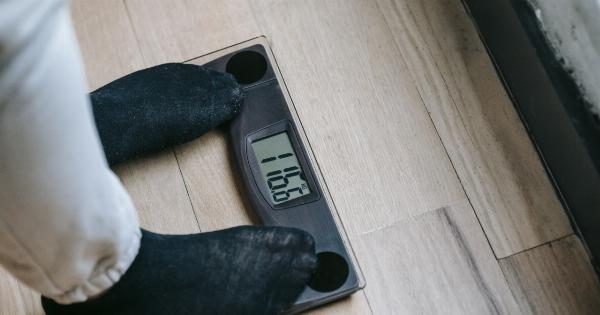Many people struggle with their weight and find it challenging to lose weight despite their best efforts. Luckily, there are several ways to supercharge your metabolism and kickstart your weight loss journey.
One of the most effective ways is through a metabolism-boosting vitamin diet. In this article, we will explore the science behind metabolism, the role vitamins play in metabolism, and introduce you to a diet plan that will help you lose weight and feel great.
What is Metabolism?
Metabolism is the process by which your body converts the food you eat into energy. This energy is used for various biological processes that keep your body functioning, such as breathing, maintaining your body temperature, and digesting food.
Metabolism can be categorized into two types: catabolism and anabolism.
Catabolism is the breakdown of complex molecules into simple ones, such as the breakdown of carbohydrates into glucose. Anabolism is the synthesis of complex molecules from simple ones, such as the synthesis of proteins from amino acids.
Together, these two processes make up your body’s metabolic rate, which is the number of calories your body burns each day.
The Role of Vitamins in Metabolism
Vitamins are essential nutrients that your body needs to function properly. They play a crucial role in various metabolic processes, such as the breakdown of carbohydrates, proteins, and fats, and the synthesis of new proteins and other molecules.
There are 13 essential vitamins, each with their unique functions. Vitamins B1, B2, B3, B5, and B6 are particularly important for metabolism, as they play a critical role in energy production.
These B vitamins are involved in the conversion of carbohydrates, fats, and proteins into energy that your body can use. They also support the function of enzymes that are essential for metabolism.
Vitamin C is another essential vitamin that plays a role in metabolism. It is involved in the synthesis of carnitine, a molecule that helps your body burn fat for energy.
Vitamin C also supports the function of enzymes involved in the synthesis of collagen, a protein that is essential for healthy skin, hair, and nails.
The Metabolism-Boosting Vitamin Diet
Now that you know the science behind metabolism and the role of vitamins in metabolism, let’s introduce you to the metabolism-boosting vitamin diet.
This diet is designed to help you lose weight, increase your energy levels, and improve your overall health. Here’s what the diet entails:.
1. Eat Plenty of Protein
Protein is essential for weight loss, as it can help you feel fuller for longer and prevent overeating. Protein also requires more energy to digest than carbohydrates or fats, which means that your body burns more calories during digestion.
Some excellent sources of protein include lean meat, poultry, fish, eggs, tofu, beans, and legumes.
2. Incorporate Whole Grains into Your Diet
Whole grains are an excellent source of complex carbohydrates that provide sustained energy without causing spikes in blood sugar levels. They are also rich in fiber, which can help promote feelings of fullness and prevent overeating.
Some examples of whole grains include brown rice, quinoa, oats, and whole wheat bread and pasta.
3. Include Plenty of Vegetables and Fruits in Your Diet
Vegetables and fruits are packed with essential vitamins and minerals that your body needs to function properly. They are also low in calories and high in fiber, which can help you feel fuller for longer and prevent overeating.
Some examples of vegetables and fruits include spinach, kale, broccoli, blueberries, strawberries, and oranges.
4. Stay Hydrated
Drinking enough water is essential for healthy digestion and metabolism. It can also help prevent overeating by making you feel fuller.
Try to drink at least eight glasses of water each day. You can also incorporate herbal tea or infused water for added flavor.
5. Get Enough Sleep
Getting enough sleep is essential for healthy metabolism. Lack of sleep can disrupt the hormones that regulate hunger and satiety, making it more challenging to lose weight.
Try to get at least seven to eight hours of sleep each night.
6. Limit Your Intake of Processed Foods and Sugars
Processed foods and sugars are high in calories, low in nutrients, and can cause spikes in blood sugar levels, leading to weight gain and other health issues.
Try to limit your intake of processed foods and sugars and choose whole foods instead.
The Bottom Line
A metabolism-boosting vitamin diet can be an effective way to kickstart your weight loss journey and improve your overall health.
By incorporating plenty of protein, whole grains, vegetables, and fruits into your diet, staying hydrated, getting enough sleep, and limiting your intake of processed foods and sugars, you can supercharge your metabolism and achieve your weight loss goals.






















